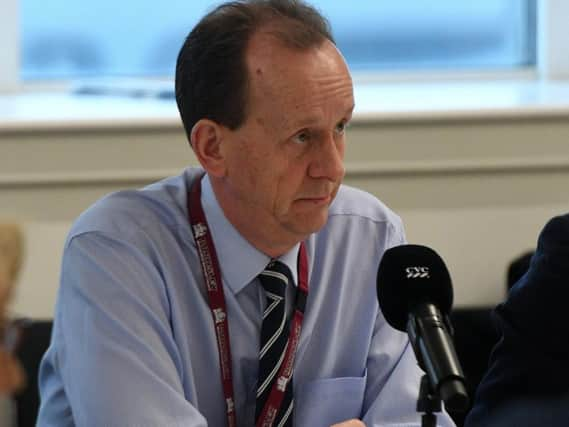Divide and rule approach to Yorkshire devolution must be avoided - Steve Houghton


The Treasury, of course, have recently mooted greater devolution of tax raising powers to local government. While such signals may be warmly welcomed by some, perhaps without question, others – Barnsley included – take a more nuanced view.
In Isiah Berlin’s influential essay, Two Concepts of Liberty, he rightly drew the distinction between the ideas of negative and positive freedom, asking: “What is freedom to those who cannot make use of it? Without adequate conditions for the use of freedom, what is the value of freedom?”
Advertisement
Hide AdAdvertisement
Hide AdSo, while greater fiscal autonomy would give local government greater freedom from the centre, it could also leave many individual councils with much less freedom to execute local plans in practice.
After almost a decade of austerity, of which local government has indisputably borne the brunt, this question is particularly apt, and nowhere more so than for the most deprived parts of the country which have been the subject of the deepest cuts.
Freedom for leaders of these councils has been increasingly reduced to the freedom to choose what vital services to cut next, while our freedoms to invest in programmes to improve the lives and prospects of local residents, as we would like, have been dramatically curtailed.
Changing the sources of funding available to councils while central government maintains its mantra of fiscal neutrality (no new funding without new responsibilities) will not remedy this situation.
Advertisement
Hide AdAdvertisement
Hide AdIn fact, without the necessary redistribution that currently takes place at a national level it could see the divide in levels of service provision between deprived and affluent areas deepen still further, ushering in an even more pronounced postcode lottery.
Mark Sandford, senior researcher at the House of Commons Library, who specialises in local government and devolution, has rightly argued in this vein that “any system of fiscal devolution that allowed local areas to retain the revenue from (new local) taxes would result in very different levels of revenue (both in absolute and per capita terms) for different areas – unless mitigating action is taken”.
Years of cuts have significantly compounded such concerns and could act to constrain in practice any freedoms that greater fiscal devolution may promise.
Professor Allan Cochrane of the Open University has argued for example that “financial devolution at a time of fiscal stress means the devolution of responsibility without an equivalent devolution of power”. This, he notes, simply means “decisions take place within centrally determined (and narrow) budgetary constraints”.
Advertisement
Hide AdAdvertisement
Hide AdThe progress of devolution to date has been piecemeal, characterised by unbalanced deals done behind closed doors without a clearly defined and universal menu of options.
The Government narrative is that devolution should be a bottom-up process and the centre should not be overly prescriptive. It’s a noble and reasonable sentiment. But in reality, this justification increasingly rings hollow.
If the process was genuinely bottom up, Ministers would not have opposed proposals for One Yorkshire devolution, and if it was genuinely non-prescriptive, they wouldn’t have recently clawed back housing funds from Greater Manchester.
We are not against devolution in principle, in fact we welcome it. But we are against the kind of piecemeal devolution that seeks to divide and rule, devolution with strings attached, and fiscal devolution with no guarantee of fair equalisation according to relative need.
Advertisement
Hide AdAdvertisement
Hide AdIn this sense, far from being a panacea for local government’s current funding crisis, greater fiscal devolution could become something of a Trojan horse, heralding further unbalanced cuts in practice for authorities with weaker than average local tax bases, while the Government continues to claim austerity is coming to an end.
So, with the apparently enticing offer of greater fiscal freedoms, local government must be careful that the Treasury is not, once again, passing the buck without passing the bucks.
Sir Steve Houghton is the Labour leader of Barnsley Council.